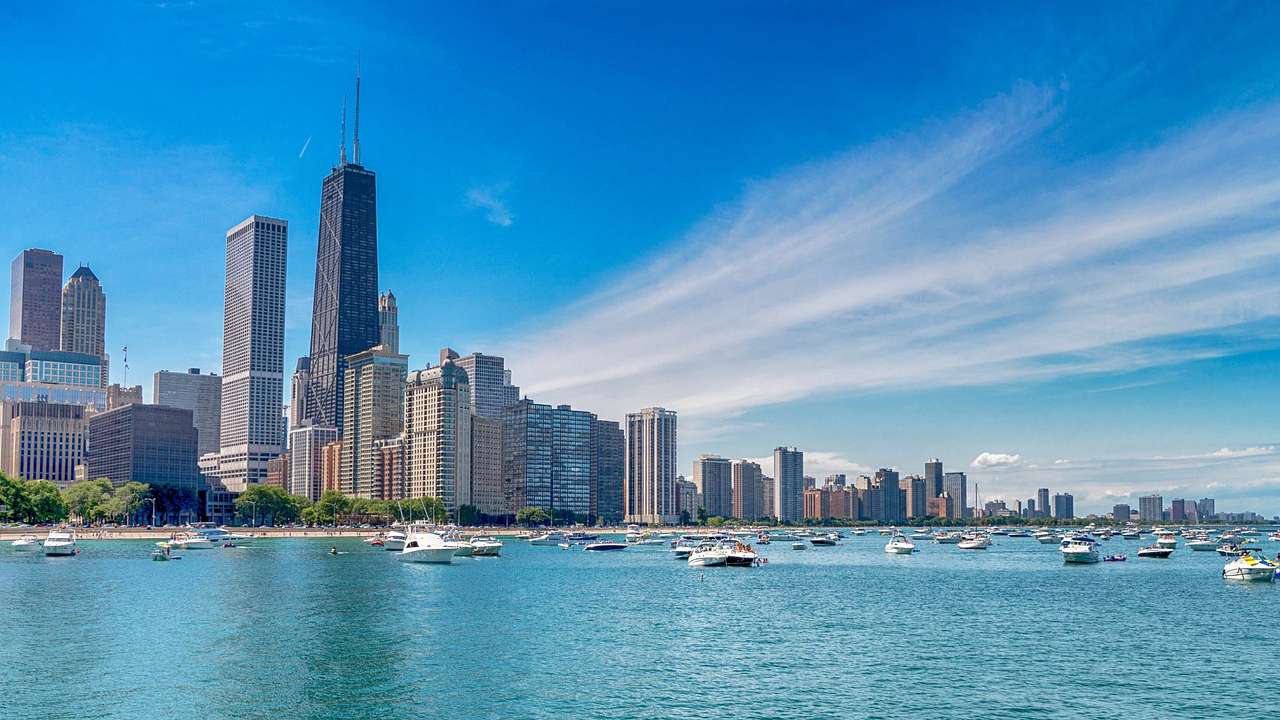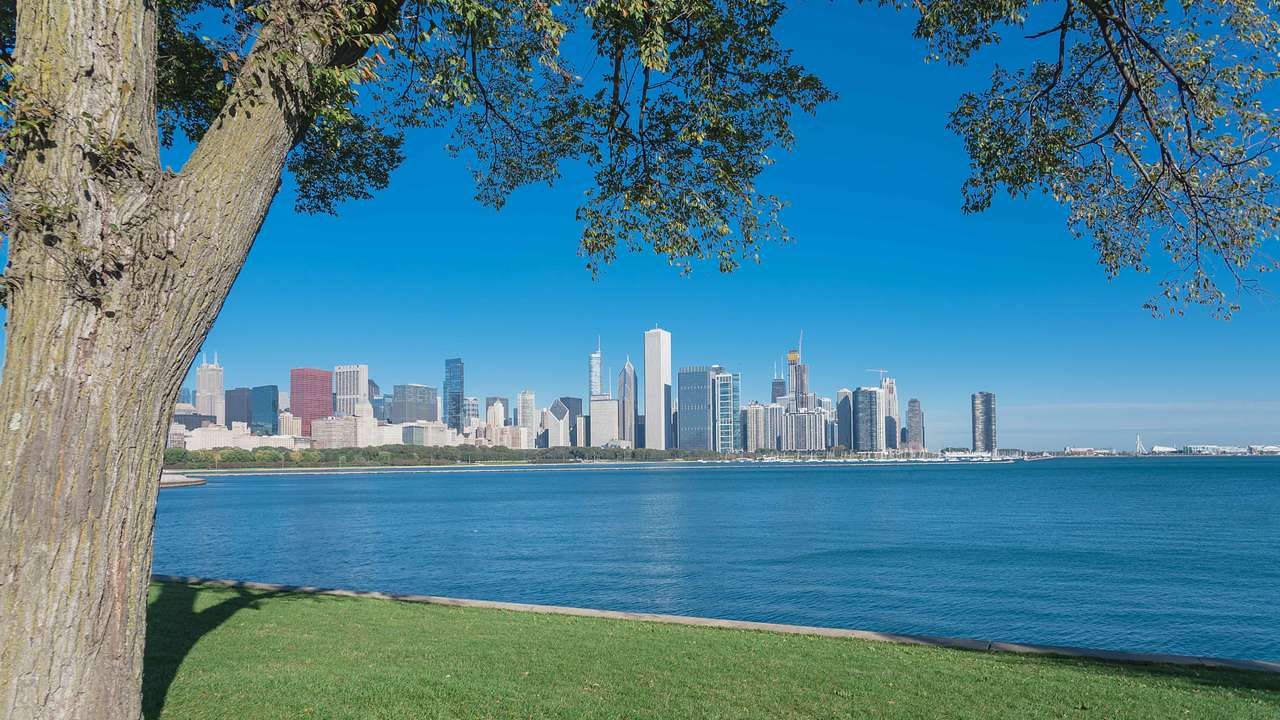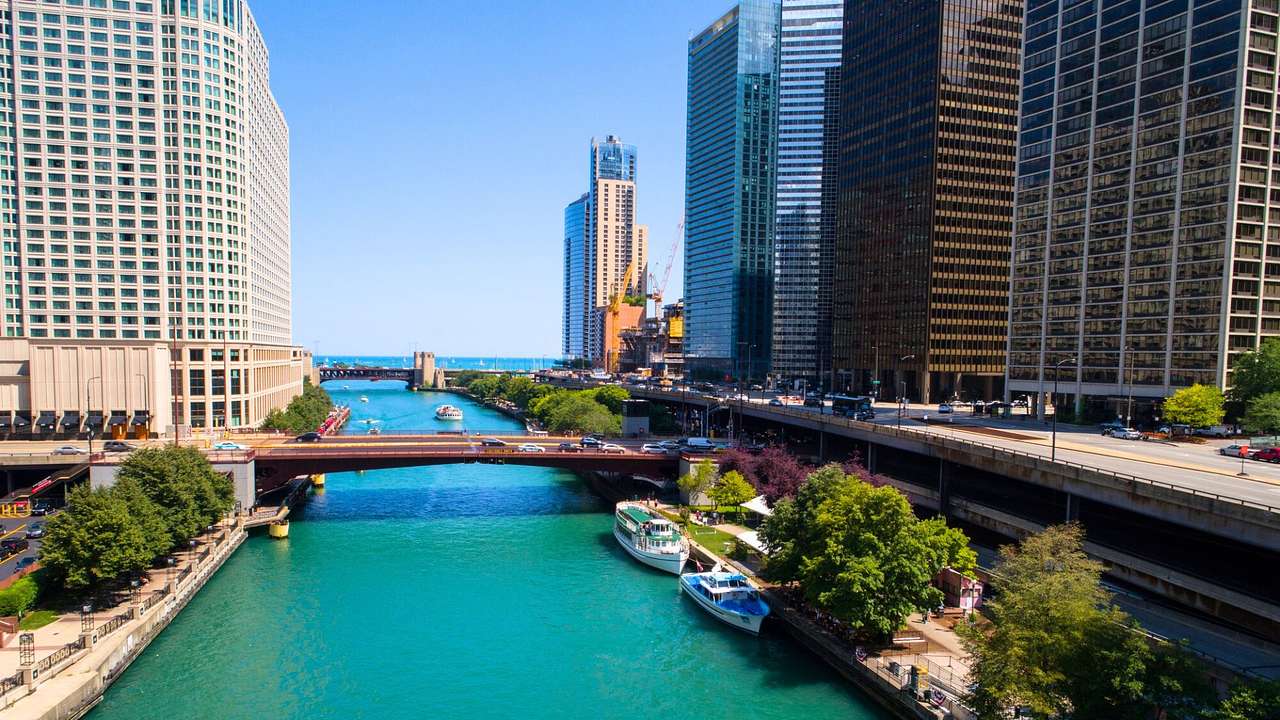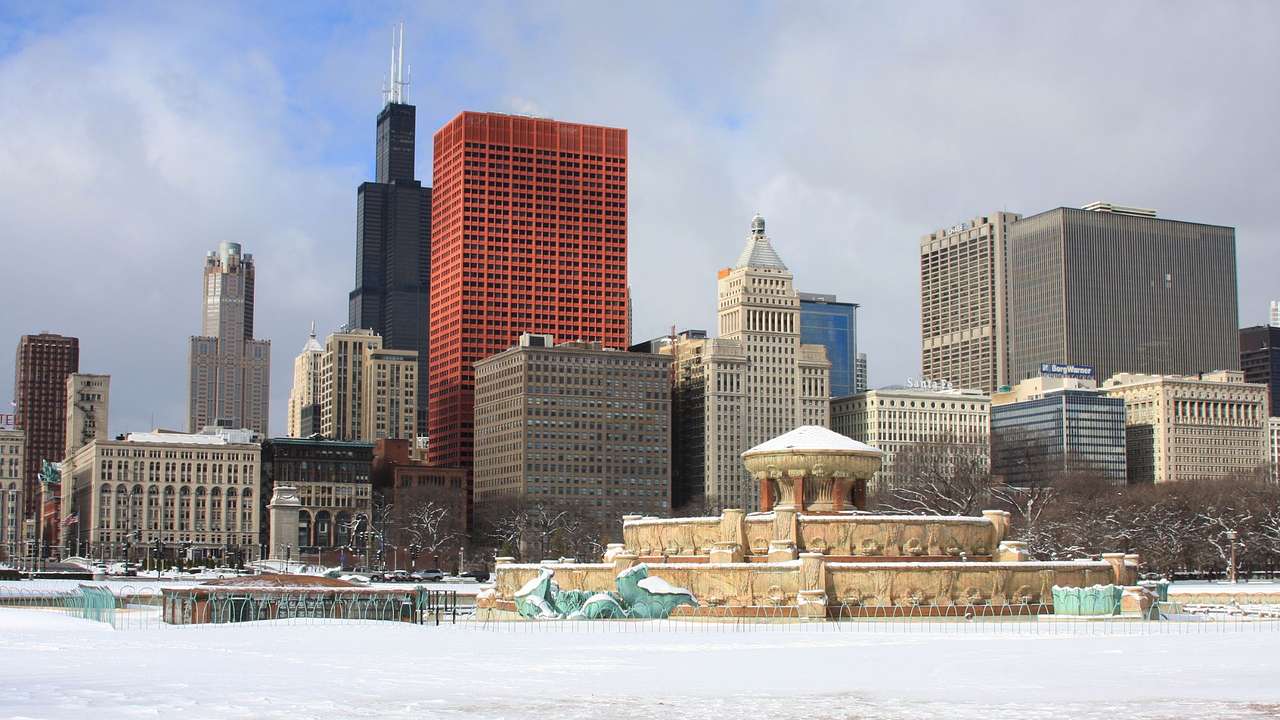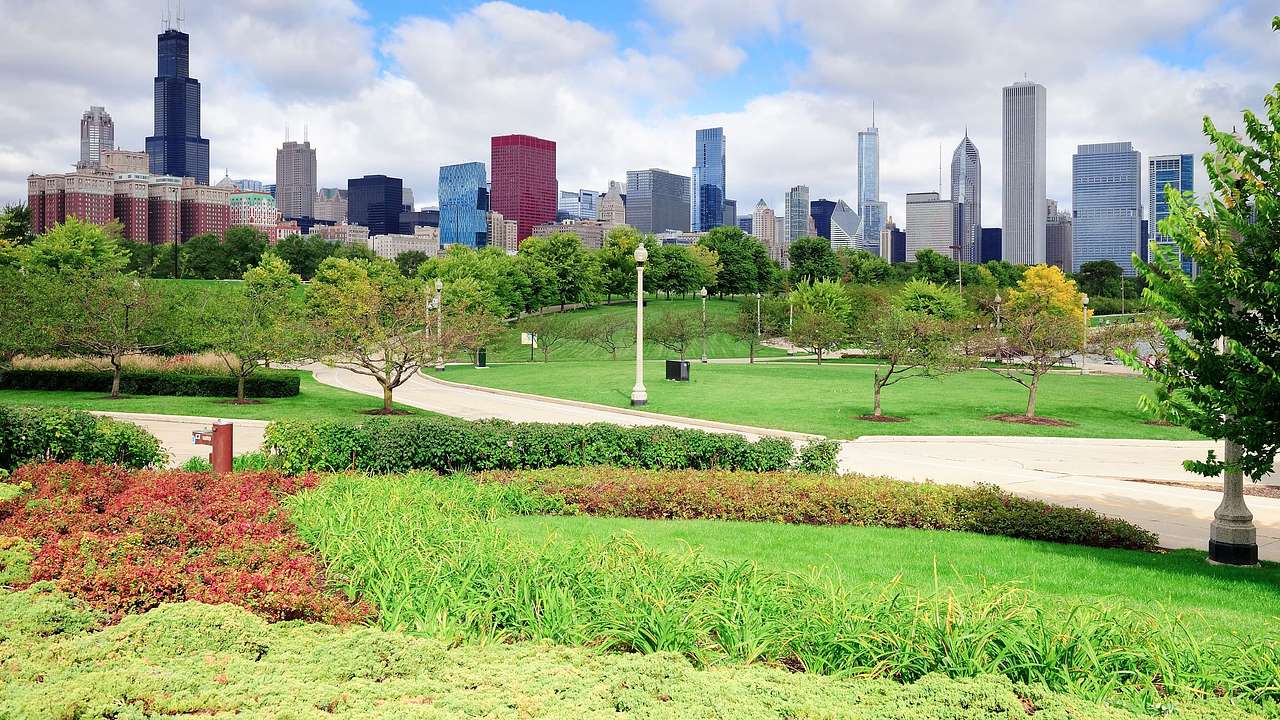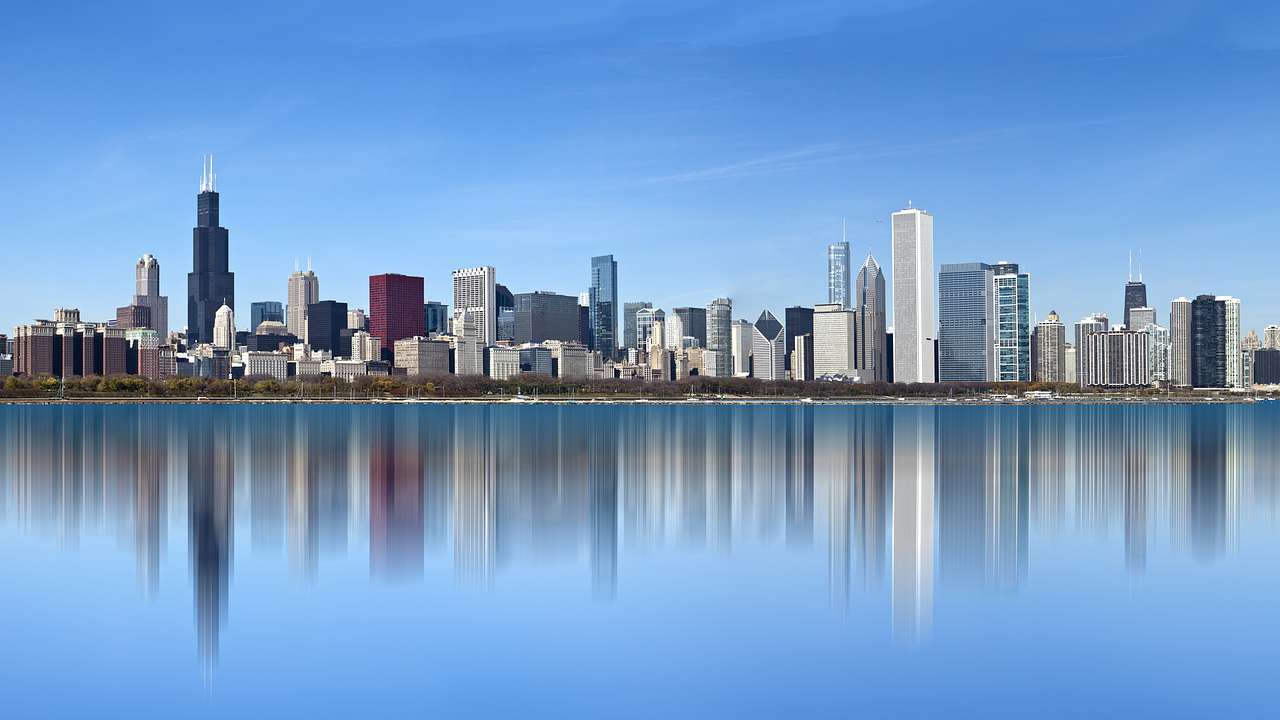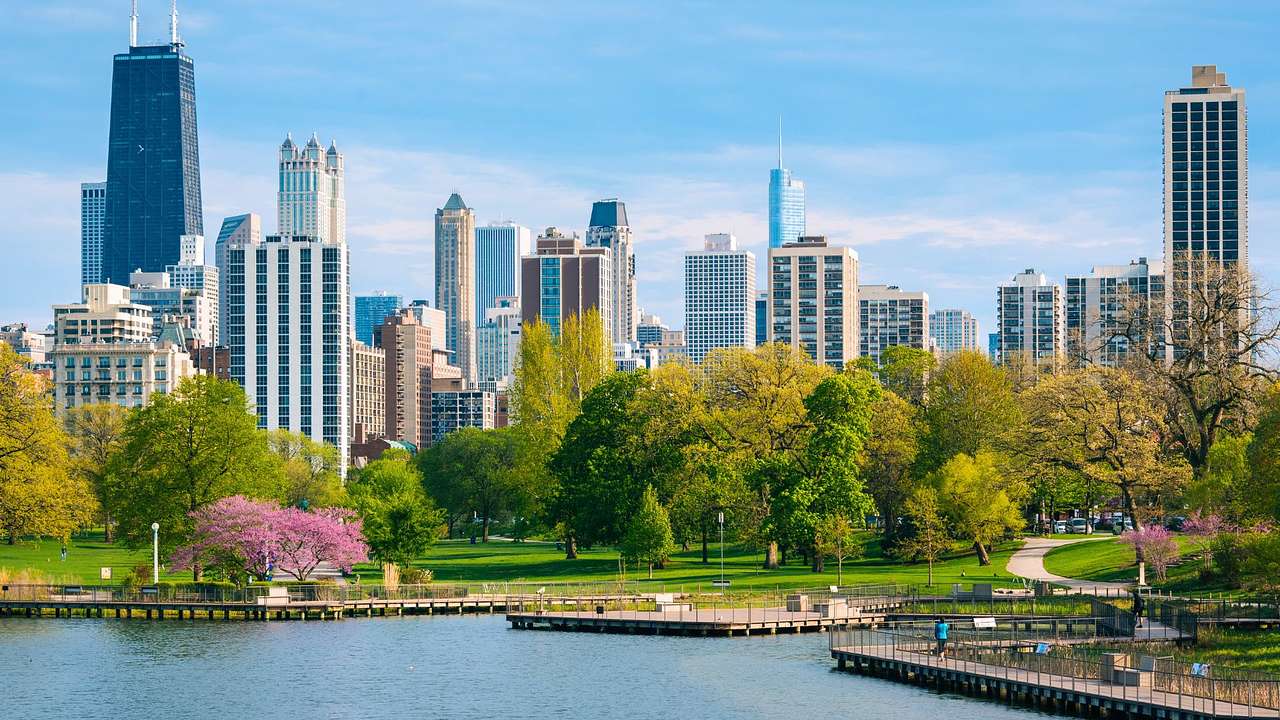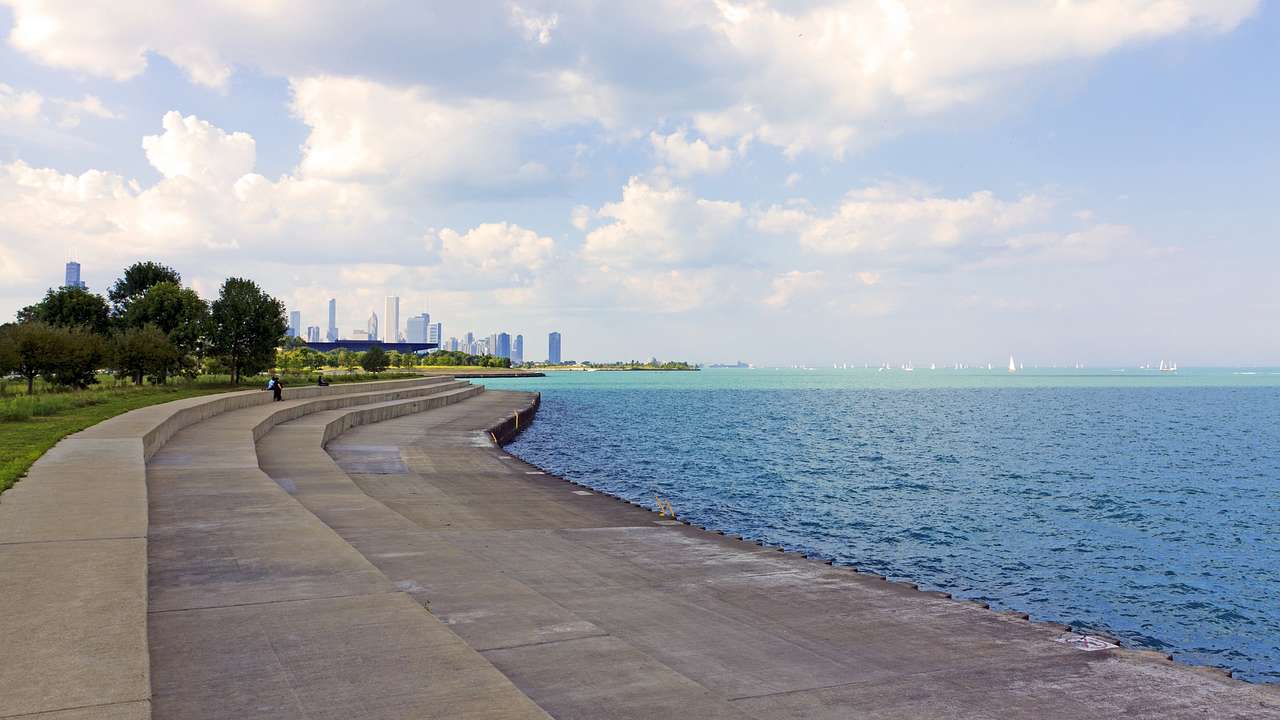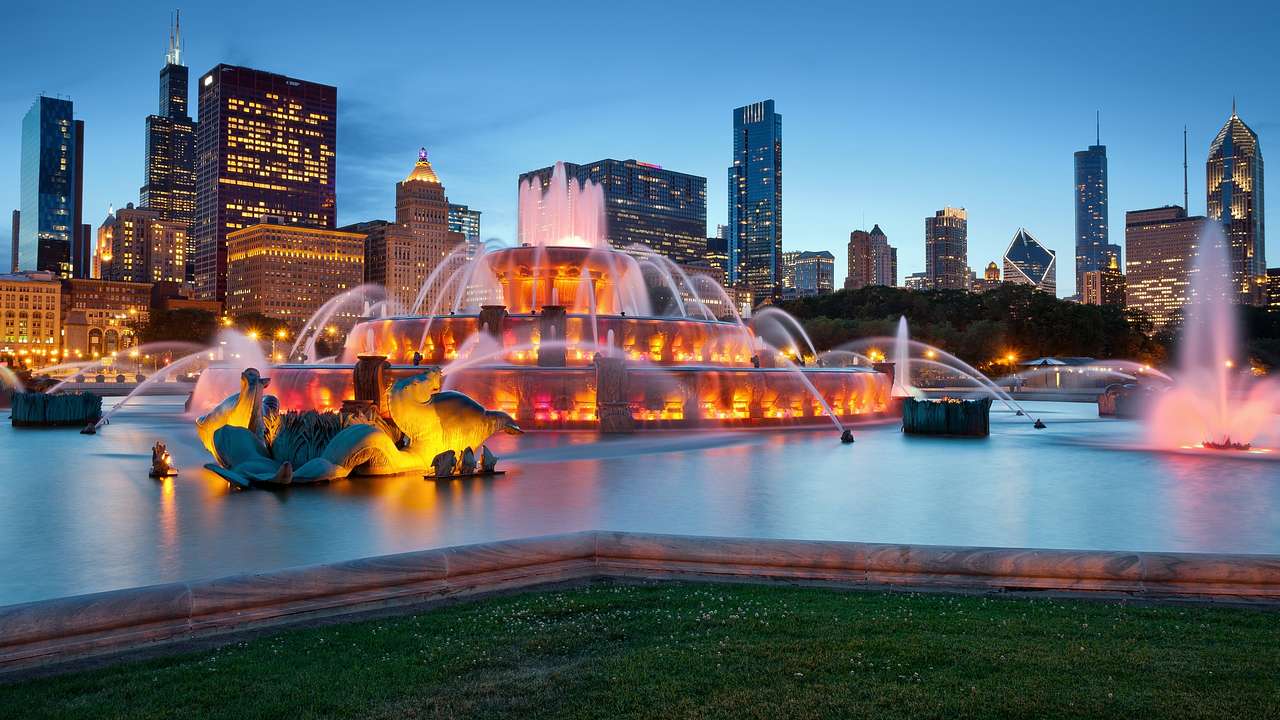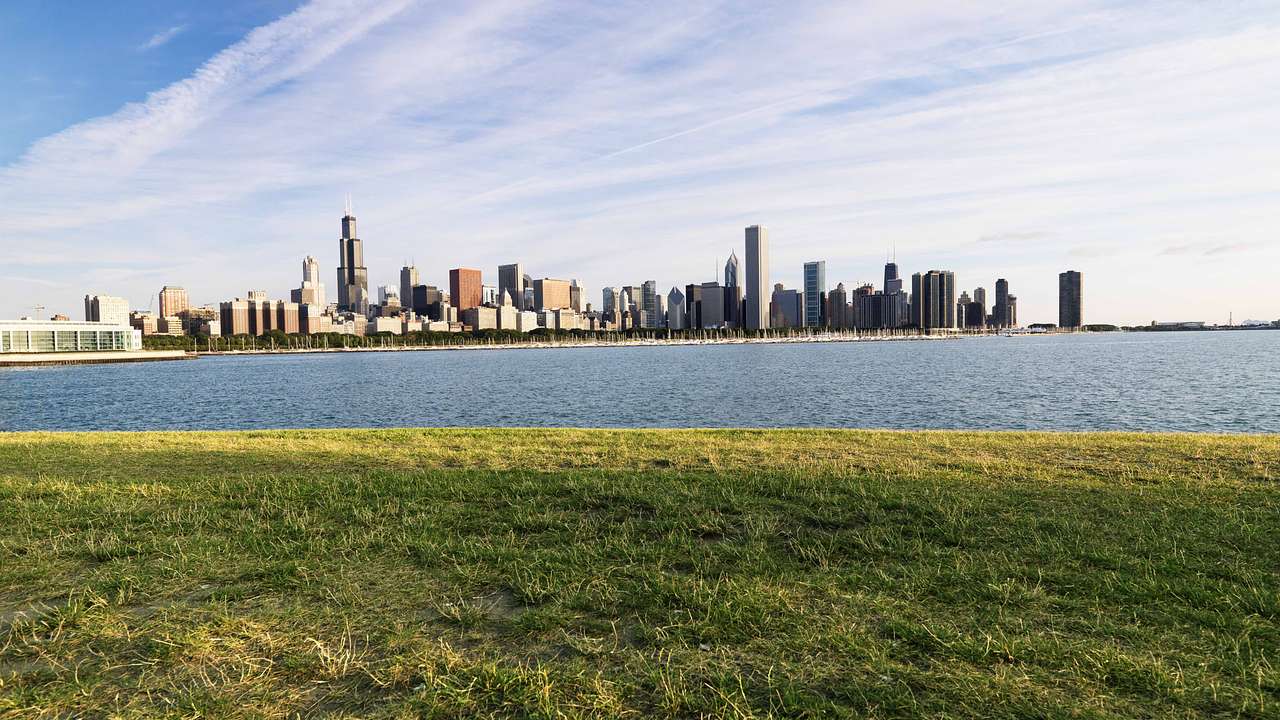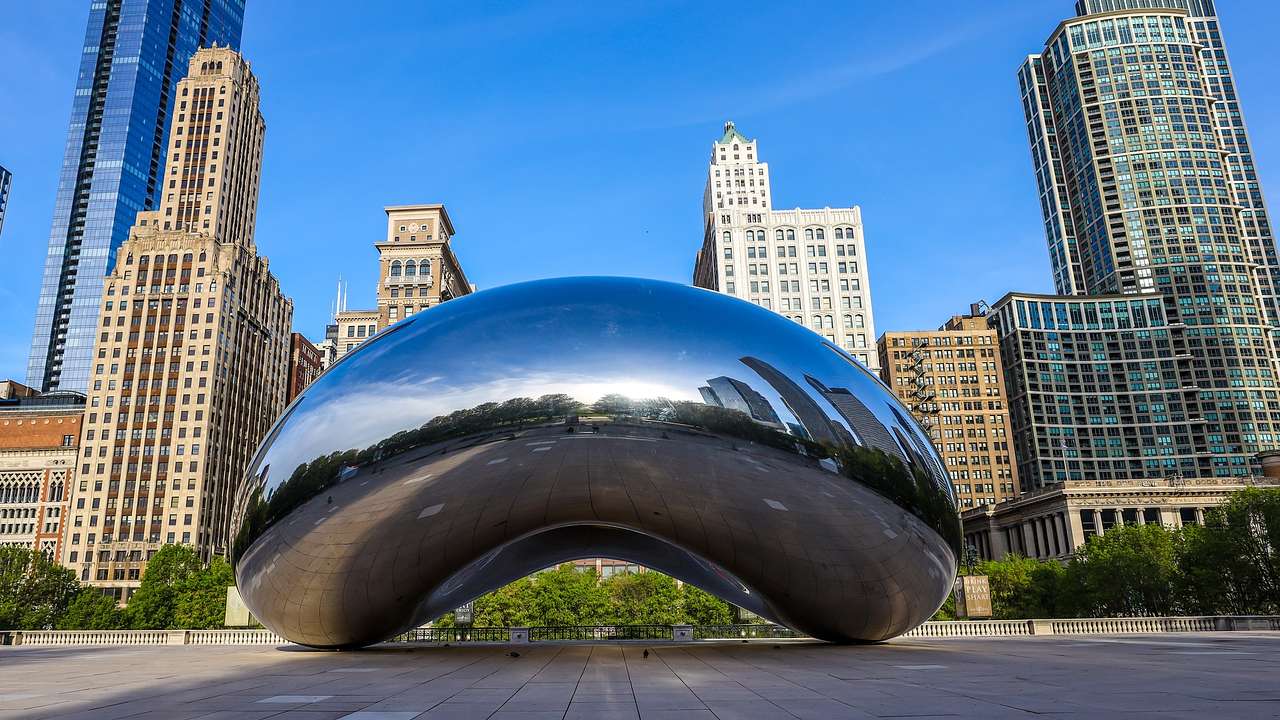25 Chicago Nicknames and the Stories Behind Them
Destguides may receive commissions from purchases made through affiliate links in this article.
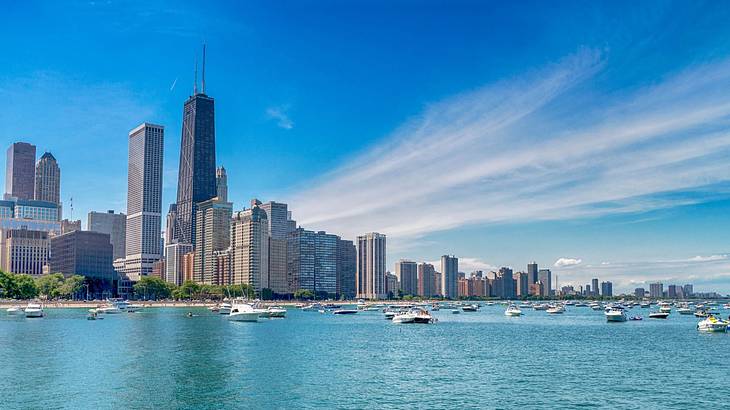
Located in the southeast region of Illinois is the bustling city of Chicago. The city is known for deep-dish pizza, fabulous architecture, and bustling atmosphere. Chicago is a true staple of American culture.
The vibrant and hard-working residents have made a name for Chicago that extends not only nationally but worldwide as well. People travel from all over for business and pleasure to one of the most popular cities in the United States.
The amount of culture and historical significance of the city lends itself to a variety of nicknames. These Chicago nicknames have various roots, ranging from chart-topping songs to world-renowned conventions and its gorgeous scenery.
Some of these nicknames and their origins may surprise you, others may make you chuckle. No matter what, these 25 Chicago nicknames are sure to leave you with a better understanding and deeper appreciation of the city.
25 Nicknames for Chicago
- Century of the Progress
- Chi-Town
- Hog Butcher for the World
- The Big Onion
- Mud City
- The City that Works
- Chiberia
- Chicagoland
- City in a Garden
- The Great American City
- City by the Lake
- The Furry Capital of the World
- My Kind of Town
- The City of the Big Shoulders
- The City Beautiful
- Paris on the Prairie
- Great Commercial Tree
- Shy Town
- That Toddlin' Town
- The Second City
- The Third Coast
- The White City
- Heart of America
- The 312
- The Windy City
Chicago Nicknames Video
Check out our highlights video of Chicago nicknames.
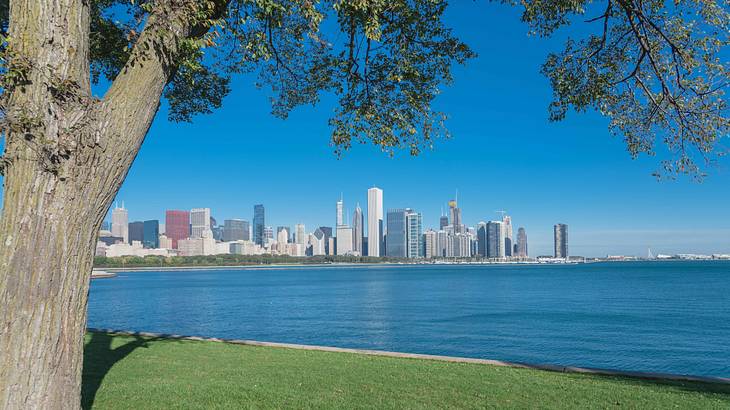
Century of the Progress
The Century of Progress Exposition occurred in 1933-1934 and had many lasting impacts on the architectural aspects of Chicago. The exposition gave the people of the city hope for the future during the Great Depression. Nowadays, the site of the fair is a lakefront park, and its heritage remains in the city's Century of the Progress nickname.
Chi-Town
Chi-Town is one of the most popular nicknames used among visitors, locals, in marketing, and in well-known literature. "Chi" is the shortened version of Chicago. Shortening the city name and adding "town" is a common nickname trend across the US, with other cities like Houston using variations.

Hog Butcher for the World
Chicago was a leader in the meat industry from the mid-1800s through 1920s. This created jobs and opportunities for locals that many had not seen before. This growth of the industry is reflected in the nickname "Hog Butcher for the World," which comes from Pulitzer Prize winner Carl Sandburg's 1914 poem "Chicago."
The poem opens with the line "Hog Butcher for the World," and Sanburg comments on Chicago's prominent role as the capital of the country's meatpacking industry. Over time, this line became a popular nickname, and it's still somewhat used despite Chicago no longer being the meatpacking capital of the United States.
The Big Onion
Interestingly, this nickname comes from the French interpretation of the local Miami-Illinois Nation's word "Shikaakwa," which translates to "Wild Onion." The name refers to a garlic plant called Allium Tricoccum which is found along the Chicago River and is native to the region.
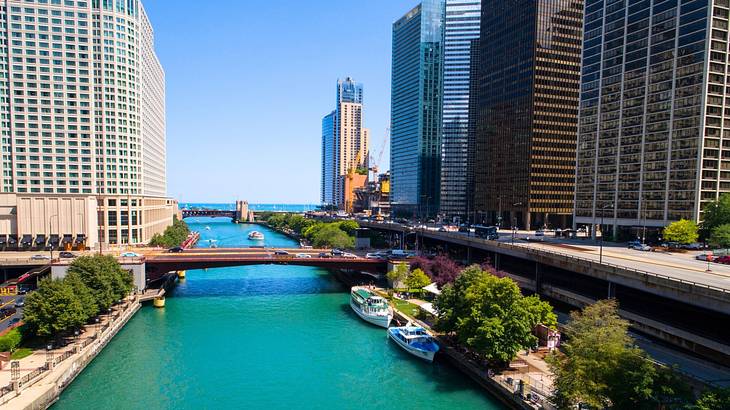
Mud City
One of the oldest Chicago city nicknames is "Mud City." The nickname started because the city was originally built on black sludgy mudflats. The Chicago River ran close by to where the city was being built, which posed a major issue for the residents.
This meant that an enormous amount of labor had to be put in to make the region safe to build on. Nowadays, the saying "Mud City" reminds locals and visitors alike of Chicago's humble history.
The City that Works
This name came from Mayor Richard Daley during an address to the city. He spoke highly about Chicago as a place filled with proud individuals that work hard towards a collective progression.
This nickname was posed in a sort of rallying manner, trying to collectively unite the people of Chicago. At its core, "The City that Works" concept rests on a sense of inspiration and a strong work ethic.
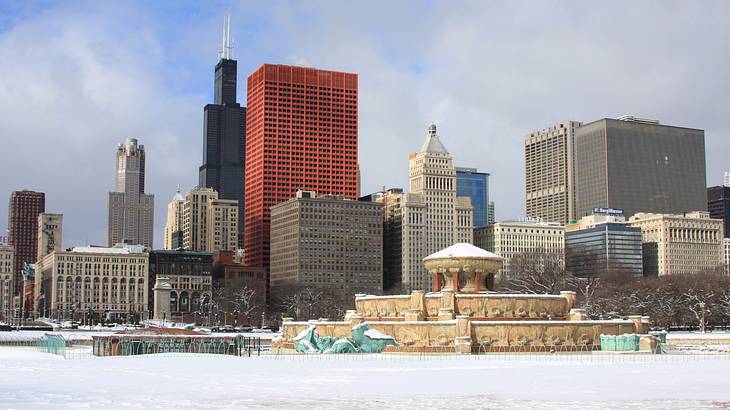
Chiberia
A meteorologist coined the name "Chiberia" as a combination of Siberia and Chicago during a polar vortex in 2014 that set record-low temperatures in the city. This name is somewhat comical as well as serious in reference to the vortex.
The low temperatures shocked its residents as many had never seen that severe of coldness before. Ever since that freezing winter, Chiberia is referred to as Chicago's winter nickname.
Chicagoland
Chicago is a large city with many densely populated suburban areas. The term Chicagoland was formed to distinguish these areas as part of the region. This nickname refers to the expansive range of the city.
One interesting Chicago fact is that there are 14 counties in total that are considered part of the Chicago metropolitan area. Therefore, when individuals say "Chicagoland," they are referring to the city and its adjacent counties under the same umbrella.
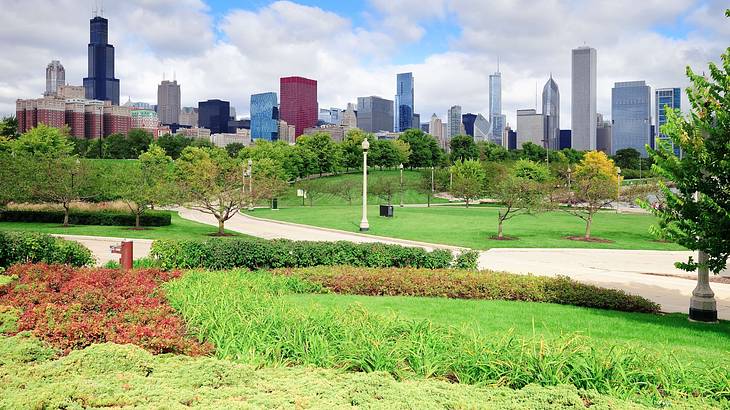
City in a Garden
The background behind this nickname for Chicago is quite poetic. Chicago was built by architects who believed a city could be much more than an industrial wasteland.
Public green spaces remain of utmost importance to the city and can be found throughout. Many of these outdoor areas are even famous Chicago landmarks, like Millennium Park and Lincoln Park.
Additionally, in the 1830s, the Chicago government started to use the motto "Urbs in Horto," which translates from Latin to "Garden in a City." This Latin phrase was later incorporated into the city's seal, where it remains today, and the English version of City in a Garden became a new nickname.
The Great American City
The book Great American City, written by Robert Sampson, is a research-based novel that depicts life in the city of Chicago. This novel was inspired by Pulitzer Prize-winning author Norman Muller's book Miami and the Siege of Chicago, where Chicago is depicted as one of the most influential cities in America.
This Chicago-inspired novel had a profound impact on academia and is still used to study social dynamics in other large cities. Because this novel was inspired by research in Chicago, the term The Great American City has become one of the popular Chicago slogans.
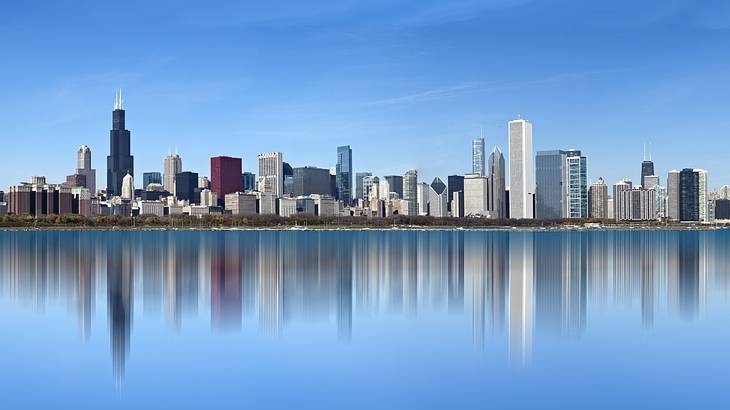
City by the Lake
The nickname City by the Lake is quite literal and is connected to Lake Michigan. Chicago sits right on the lake, and you can see it from many parts of the city, including while visiting famous Illinois landmarks, like Lincoln Park.
Visitors and locals alike enjoy lakeside activities, picturesque strolls, and the ambiance that the lake provides. There is no doubt that Lake Michigan is an essential part of Chicago's charm.
The Furry Capital of the World
Hosted on the edge of Chicago in Rosemont, the Midwest FurFest convention sees thousands of individuals come together to celebrate furry fandom. The popularity of the MidWest Furfest helped coin the name "The Furry Capital of the World."
Interestingly, the event has set records for attendance at furry festivals worldwide. In 2022 there were roughly 13,600 people in attendance, leading some to call Chicago and the surrounding area the Furry Capital of the World.
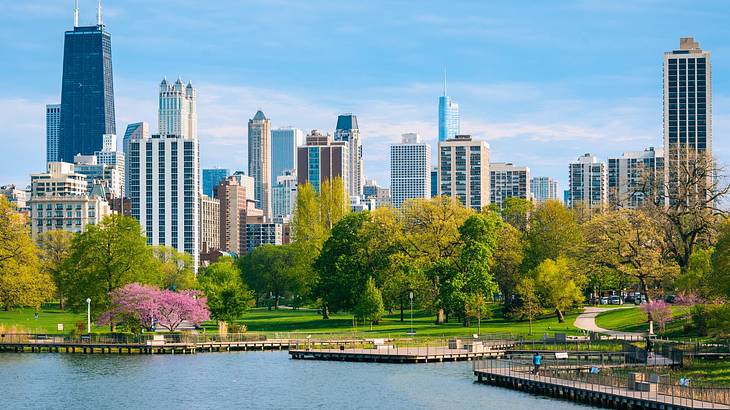
My Kind of Town
The song My Kind of Town (Chicago Is) is a tune that Frank Sinatra recorded about the great city of Chicago. The lyrics reflect a strong connection to the locals, music, and landmarks of the city. It is an excellent ode to the beauty that you find while walking along the streets of Chicago, and the title My Kind of Town is now a moniker that can be easily connected to the city.
The City of the Big Shoulders
Poet Carl Sandburg's poem Chicago mentions Chicago as the "City of the Big Shoulders." Sanburg's commentary refers to the hard-working physical laborers who built the city from the ground up. The poem and nickname serve as an homage to the work ethic of the tradesman and laborers who set the foundation for the city.
The City Beautiful
The City Beautiful relates to a movement of the same name that involved a reformed philosophy around architectural innovation. The movement began in the 1890s and rested on the idea that the beautification of a city would lead to a more harmonious living environment.
Chicago is one of the major cities that the movement was associated with. It became even more linked to the city due to the 1893 World's Columbian Exposition in Chicago.
Daniel Burnham, whose 1909 Plan of Chicago is known as one of the principal documents of this movement in Chicago, planned the expo. Due to these many connections to the movement, Chicago gained the City Beautiful nickname.
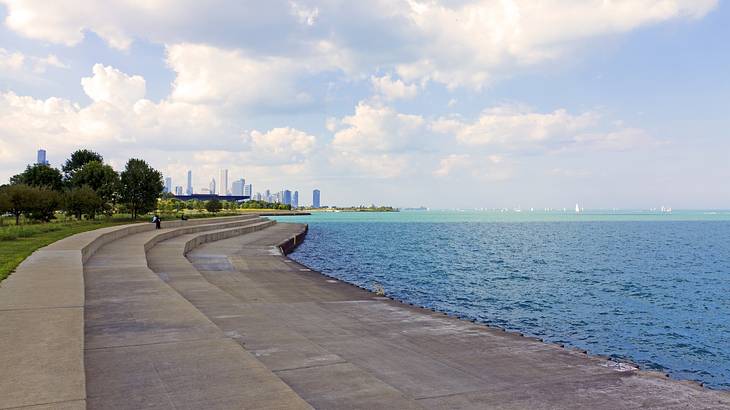
Paris on the Prairie
Paris of the Prairie was the nickname given to Chicago when Daniel Burnham designed the urban plan for the city. This plan included wide boulevards which parallel a similar structure to Paris in the 19th century. Unfortunately, due to the tremendous impact of the Great Depression, much of this work was not implemented.
Great Commercial Tree
Chicago is also known as the Great Commercial Tree, which comes from the lyrics of the state anthem of Illinois. This nickname connects locals to the city's sense of a greater, patriotic community.
Shy Town
Shy Town is a version of the nickname "Chi-Town." It's simply spelled in the way you pronounce "Chi-Town." Interestingly, the nicknames Shy Town and Chi-Town can be traced all the way to the early 1900s!
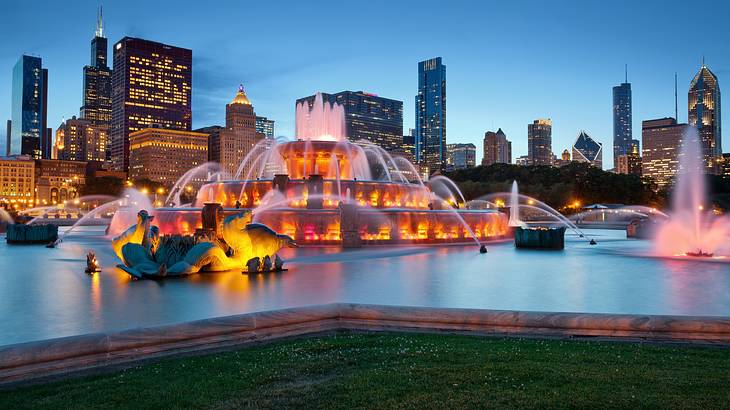
That Toddlin' Town
Frank Sinatra performed the song Chicago (That Toddlin' Town) in 1957 and brought it to the top of the charts. In the 1920s, a dance became popular called the Toodle, and Chicago was known for its dancing and lively nightlife scene. The nickname was an excellent portrayal of the city's liveliness.
The Second City
The name Second City was originally used as an insult in an article published in the 1950s written by A.J. Liebling. At first, the name was intended to reflect Chicago as a "second-class city," but has since come to mean "second to none."
Since the name was first given, the image of the city in this once negative remark has made a positive turn. Even the highly respected daily newspaper, the Chicago Tribune, has referred to the city as such.
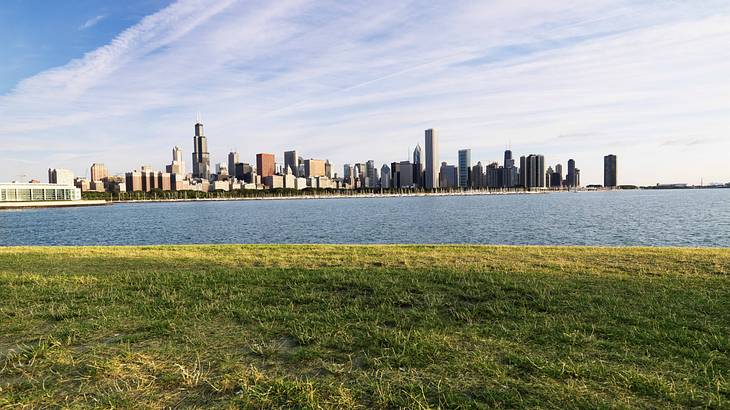
The Third Coast
This nickname references the extensive Lake Michigan shoreline that serves as the backdrop for Chicago. The term Third Coast is used to describe coastal regions aside from the East and West coasts.
This name is often used to refer to the Great Lakes region, which Lake Michigan is part of. The Third Coast: Chicago's chapters in the Book of American Culture by Thomas Dyja has recently made the nickname even more prominent.
The White City
In 1893, Chicago hosted the World's Columbian Exposition, in which the buildings were built using plaster that created a chalky, white effect, leading to the name the White City.
The bright street lights especially emphasized the whiteness of the city. This exposition was very prominent in American history as well and has since been associated with the city as a whole.
Heart of America
Chicago is one of the largest, most populated cities in the United States. It serves as a major hub for transportation both domestically and internationally. The slogan Heart of America is in reference to Chicago's vital role in the nation's prosperity as well as the friendly locals, beautiful architecture, and rich history.
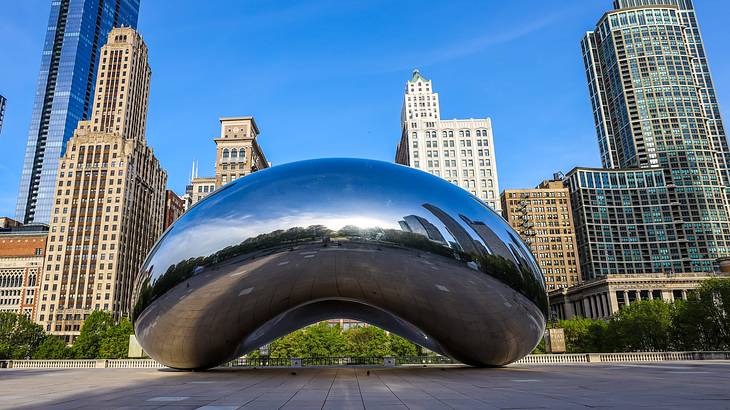
The 312
The 312 is one of the popular slogans for Chicago because 312 is the area code for the metropolitan area, including the business district of The Loop. This is used by locals mostly to refer to the city, but visitors who are familiar with this also reference it when speaking about Chicago.
The Windy City
Perhaps the most famous nickname that Chicago has is The Windy City. While not completely certain, many believe this nickname dates to the 1870s.
At first, you may think that "windy" refers to weather patterns, which is partly true. The city is windy but is not considered the windiest in America.
Another explanation behind this name refers to Chicago's political scene. In the 1890s, Chicago politicians were described as "windbags" and "full of hot air." The nickname has stuck around, and the city still has a prominent role in the nation's political realm.
In Summary
Chicago is a wonderful city that has a rich history, friendly residents, and a major economic influence on the nation. The city's character and charm draw people from all over the world.
Over the years, nicknames have risen from a variety of backgrounds. Some of these are comical, others have a more serious connotation. There are nicknames that are well-known worldwide and others that are mostly used by Chicago locals.
Hopefully, this list has taught you something new and interesting about Chicago's history and gives you a deeper appreciation for The Windy City.
Want to keep exploring?
Subscribe for discounts on tickets and hotels and our latest guides.
Thank you for subscribing
We will be in touch soon with discounts on tickets and hotels and our latest guides.
Want to keep exploring?
Subscribe for discounts on tickets and hotels and our latest guides.
Thank you for subscribing
We will be in touch soon with discounts on tickets and hotels and our latest guides.

